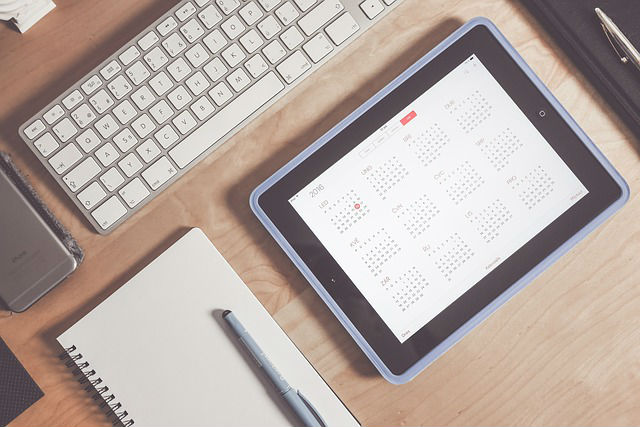 Reading Time: 7 minutes
Reading Time: 7 minutesHave you ever had that “Gaahh!” feeling? Like there’s too much on your plate, your brain is frozen, and you’ll tip over the edge if someone asks you to do one more thing?
If so, you’re not alone. Life feels overwhelming at times. Each day can pass in a flurry of activity without ever feeling like you’re getting things done. With so much left to do, you’re not sure how you’ll get through the day, week, month, or year.
Yes, most of us are busy. We try to do all the things, all the time. We’re afraid of letting people down or missing out on something important, so we keep doing, doing, doing.
Before long, it creates the mental chaos known as overwhelm.
You’ve likely experienced overwhelm before. Maybe you’re stuck in it now.
It could feel like being bogged down and depleted. You can’t catch your breath, physically or mentally. You forget appointments or always run late. You have trouble falling asleep, staying asleep, or getting enough sleep. You feel like your attention is pulled in all directions. You’re distracted and frazzled.
With so many people feeling overwhelmed, we’ve begun to accept it as the new normal. But does it need to be that way? Perhaps it’s time to reduce overwhelm and refocus on what really matters.

What Is Overwhelm?
Overwhelm happens when the sheer volume of thoughts, feelings, tasks, and stimuli in our daily environment shifts our brain and nervous system into a reactive, stressed state. In this state, our brain’s pre-frontal cortex — which helps with logic, problem solving, analysis, prioritization — takes a back seat while our amygdala (the “survival” brain) fires up the fight, flight, freeze response.
At this point, you feel locked down, unable to think or make a decision. Adrenaline and cortisol are released, which further ramps up the stress response. In this reactionary state, your creative problem solving abilities disappear. Simple requests or tasks feel completely unmanageable and become the final straw, often provoking an emotional response out of context to the situation.
Clearly, being in a constant state of overwhelm is not ideal for enjoying life. Nor does it make you a fun person to be around.
The great news is, our brains are remarkable and more changeable than previously thought. With a little practice and attention, we can create and develop new neuropathways. These new connections help us cultivate better ways of thinking, feeling, and responding to life’s challenges.
Further, while we can’t control our external circumstances, we can choose how to react to them. The more we recognize and control our response, the less overwhelmed we’ll feel.
With that in mind, here are five ways to reduce overwhelm in your life:
1. Breathe
Being overwhelmed can feel claustrophobic. It often brings on anxiety and panic, and leads to emotional outbursts and reactions.
Before going any further, stop and take a breath. Inhale to the count of four, hold for a count of seven, then exhale to the count of eight. Repeat three times.
This cycle of 4-7-8 breathing is effectively a circuit breaker. It moves you away from the short, shallow chest breaths toward the long, full, belly breaths. Repeating this exercise switches off the sympathetic nervous system (the fight-flight-freeze response) and activates the para-sympathetic nervous system (the rest and digest system). It slows your heart rate, relaxes your muscles, calms your breathing, and reduces your blood pressure.
By simply stopping and breathing, you can reduce the feeling of overwhelm. This exercise is also a wonderful way to prepare for sleep at the end of the day.

2. Write It Down
Grab a notebook and a pen and do a brain dump. Write down everything that’s swirling in your head. Don’t worry about spelling, grammar, or using the right words. Just write it out.
The benefits of this exercise are two-fold. First, expressing your thoughts and feelings without judgment makes you feel better. Second, once everything is written down, you’ll be able to categorize, sort, and prioritize. It will give you a clearer idea of what needs to be done and in what order.
As a side-benefit, sorting things into lists and creating order amid chaos has a calming effect on the brain. It can literally feel like a weight has lifted from your shoulders.
3. Create a Routine
Going forward, spend some time each week organizing and prioritizing your tasks. For example, I set aside time each Sunday to plan the week ahead. I allocate tasks for each day, then review and adjust as the week progresses.
I also have a yearly planner for the big picture stuff, and a whiteboard for the upcoming month or quarter. This routine allows me to keep track of my short- and long-term lists, and create order in what would otherwise be a hodgepodge of things to do.
Another tip for planning your days — be realistic. We tend to underestimate the time it takes to get things done. Schedule some white space around appointments so you’re not rushing from one thing to another.

4. Manage Expectations
I get it — you like helping others. It makes you feel good to know you’ve made a difference, improved someone’s day, or helped a friend in need. Besides, you hate saying “no” and can’t figure out how to do it without feeling bad.
While the sentiment behind saying “yes” is often admirable, the end result of always trying to accommodate and please others leads to overwhelm. And, in truth, being in a frazzled, over-committed state is no help to yourself or others.
Learn to say “no” to the things you don’t want to do. If the thought of saying “no” makes you reel in horror, try taking baby steps by saying, “Let me think about it,” or “Can I get back to you?”
If you must say “yes,” set up some expectations around how much you can help and the time frame. For example, rather than simply saying “yes” to a friend’s request to help her move into a new house, respond with, “Yes, I can help you on Saturday morning for three hours.” You’ll still help her out, but you’ll both have clear expectations on your level of involvement.
By managing your commitments, you won’t feel resentful for sacrificing your time, but can still fulfill your sense of obligation.

5. Choose Wisely
Overwhelm often comes from trying to do all the things, all the time. Life presents us with so many opportunities that we feel compelled to grab them for fear of missing out. We take on a new project at work, while signing up for a half-marathon, enrolling in a cooking course, and agreeing to chair a new committee, all while navigating life’s daily challenges. It’s little wonder we feel overwhelmed.
In truth, we bring that feeling on ourselves. No one is forcing us to do everything at once. We’re choosing it. Do we really need to do it all? The answer is likely no.
I’m not encouraging you to withdraw from life, turn down opportunities, or cut back on the things that make you happy. Instead, I want you to consciously choose to do the things that fully engage you — the things that bring you a sense of purpose, well being, and fulfillment. You will derive far more pleasure and value from fully experiencing one thing than trying to do five things at once.
In other words, make sure the benefits outweigh the cost of feeling overwhelmed. All those other things will still be there later, or better opportunities will come along when you’re ready.
The Key to Overcoming Overwhelm
Life is unlikely to get slower. Living it in overwhelm is a miserable, exhausting, and ragged existence. So, stop, take a breath, and get some perspective.
Life is too precious to spend it chasing all the things, all the time. Focus on what you can do, right now, to bring a little calm to your life.
Your brain, your body (and those bodies around you) will thank you for it.










